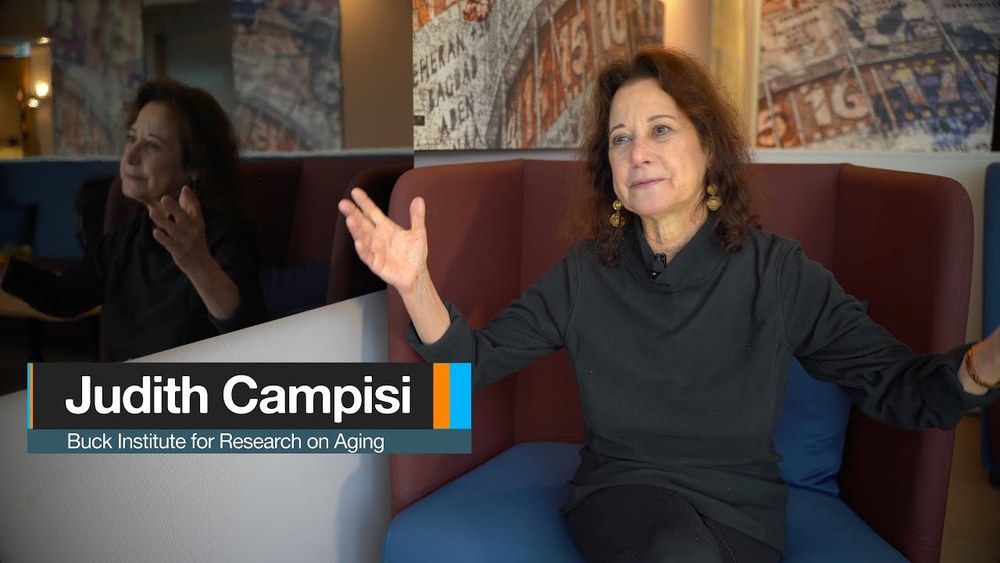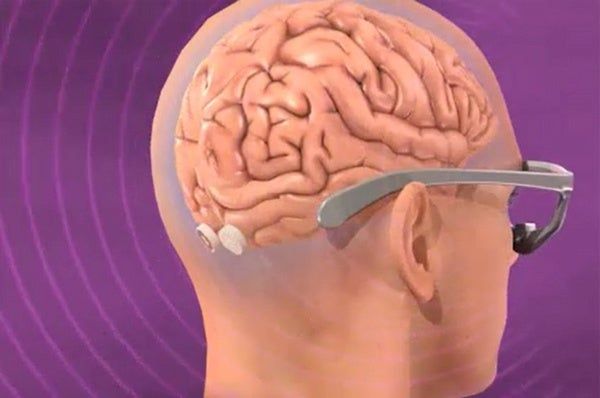Page 7581
Aug 27, 2019
DARPA Making Progress on Miniaturized Atomic Clocks for Future PNT Applications
Posted by Saúl Morales Rodriguéz in category: futurism
Aug 27, 2019
Key Uncertainties About the Future of Women
Posted by Alexandra Whittington in categories: economics, policy, sex

In the past several months, the issue of ensuring a truly equal future for women in society has risen up the agenda of global challenges – whilst at the same time indicators suggest the actual gap is growing globally. From harassment and #metoo to #timesup and the rights to equal pay and equal access in education, the workplace, and the boardroom, women have been succeeding in spotlighting the issues and arguing for their rights. So, as we look to the future, some fundamental questions arise: What is the future of women? Are women’s futures different from men’s futures? How do we proceed in the coming years to embed a gender equality mindset while accounting for the unique challenges women face?
This article draws on insights from our recent book – The Future Reinvented – Reimagining, Life, Society and Business to explore how business and society can adjust to ensure a more positive future for women, focusing on what we consider to be critical agenda issues. We conclude with our advice and dreams for the future of women.
Areas which could benefit significantly from the increased participation of women
As we look to the forces shaping our world, it is clear that society as a whole could benefit significantly from the increased participation of women in the future of technology development, elected governmental roles, and higher education. For example, we need to better understand that an algorithm can be racist or sexist before integrating artificial intelligence (AI) into our social systems and institutions. The new book by Dr. Safiya Umoja Noble, Algorithms of Oppression, is a great example of the kind of critical thinking about its broader social implications that the technology sector needs.
Continue reading “Key Uncertainties About the Future of Women” »
Tags: Future of Work, Women, Women's rights
Aug 27, 2019
History Made: How Costa Rica has Doubled It’s Tropical Rainforest Cover
Posted by Quinn Sena in categories: employment, habitats, policy
The year 2017 saw the second highest global tree cover loss recorded in the history of this planet, according to the World Economic Forum. Researchers at the University of Maryland (USA) found an area of tree loss equal to the size of Bangladesh. That equates to losing 40 soccer fields covered in trees every minute for a year. But guess what, Costa Rica took the fight in the other direction, declaring they had officially doubled their tropical rainforests since 2001. Doubled!
How can the world learn from Costa Rica’s experience and use it as a model for other nations? It helps to take a closer look at exactly what Costa Rica has done right in managing this issue, while other countries have failed miserably. In the mid-20th century, three quarters of Costa Rica was covered in lush, verdant tree canopy. Then came loggers, who savagely cleared acres and acres of pristine rainforest, lining their pockets by selling off Costa Rica’s natural resources. At the same time, of course, they were destroying the natural habitats of Costa Rica’s indigenous creatures, for instance Golden toads and Poison dart frogs.
But then, something changed radically in the thought processes of Costa Rican policy makers, and the rate of deforestation slowed, until it eventually dropped to zero. What happened? Costa Rica awakened to the potential of its rich ecosystems and began vigorously safeguarding them. Healthy ecosystems meant tourist dollars and employment opportunities for Ticos throughout the country.
Aug 27, 2019
Shhhhh. Listen Closely. Your Plants Might Be Talking
Posted by Quinn Sena in category: futurism
As part of the “Sonic Succulents” exhibit at the Brooklyn Botanic Garden, visitors are encouraged to touch plants and listen to what that contact sounds like. Dana Cronin/NPR hide caption.
Aug 27, 2019
A New Type of Visual Prosthetic
Posted by Paul Battista in categories: biotech/medical, cyborgs, government, health, neuroscience
In normal vision, light falls on the retinas inside the eyes, and is immediately transduced into electrochemical signals before being uploaded to the brain through the optic nerves. So you do not see light itself, but the brain’s interpretation of electrochemical signals in the visual parts of the brain. It follows that, if your eyes do not work, but your brain is stimulated just so, your visual neurons will activate (and you will be able to see) just the same as if your eyes were in perfect condition.
Sounds easy, but can we do that? Building on decades of research in visual neuroscience, my lab, in collaboration with Susana Martinez-Conde’s, has now conducted some of the studies that validate this idea, completing some of the most important preliminary steps towards a new kind of visual prosthetic.
Francis Collins, the Director of the National Institutes of Health, has just posted a blog that highlights our approach. He took notice of our work when we first presented it at this year’s meeting for the Principal Investigators of the BRAIN Initiative—the NIH led government funding initiative meant to spur research along on topics like brain implants. The BRAIN Initiative funds several agencies including the NIH, including the National Science Foundation, who kindly funded the grant driving our research thus far.
Aug 27, 2019
Sleep-Disordered Breathing Tied to Accelerated Aging
Posted by Paul Battista in categories: biotech/medical, genetics, life extension
SAN ANTONIO — Sleep-disordered breathing (SDB), and the disruption in nightly sleep it causes, speeds up the aging process, according to preliminary research.
SDB is a common disorder that results in oxidative stress and inflammation and is associated with several age-related health disorders. However, it hasn’t been well studied with respect to epigenetic aging.
“To our knowledge, this study is the first empirical study that has linked sleep-disordered breathing with epigenetic age acceleration,” Xiaoyu Li, ScD, of Brigham and Women’s Hospital and Harvard Medical School in Boston, Massachusetts, told Medscape Medical News.
Aug 27, 2019
Judith Campisi — Senolytics for Healthy Aging
Posted by Paul Battista in categories: biotech/medical, bitcoin, life extension, lifeboat

Is an American biochemist and cell biologist. She is a professor of biogerontology at the Buck Institute for Research on Aging. She is also a member of the SENS Research Foundation Advisory Board and an adviser at the Lifeboat Foundation. She is co-editor in chief of the Aging Journal, together with Mikhail Blagosklonny and David Sinclair, and founder of the pharmaceutical company Unity Biotechnology. She is listed in Who’s Who in Gerontology.
She is widely known for her research on how senescent cells influence aging and cancer — in particular the senescence-associated secretory phenotype (SASP).
Continue reading “Judith Campisi — Senolytics for Healthy Aging” »
Aug 27, 2019
Nanoparticles could someday give humans built-in night vision
Posted by Paul Battista in categories: entertainment, nanotechnology, space

Movies featuring heroes with superpowers, such as flight, X-ray vision or extraordinary strength, are all the rage. But while these popular characters are mere flights of fancy, scientists have used nanoparticles to confer a real superpower on ordinary mice: the ability to see near-infrared light. Today, scientists report progress in making versions of these nanoparticles that could someday give built-in night vision to humans.
The researchers will present their results at the American Chemical Society (ACS) Fall 2019 National Meeting & Exposition.
Continue reading “Nanoparticles could someday give humans built-in night vision” »
Aug 27, 2019
New evidence that optimists live longer
Posted by Paul Battista in categories: biotech/medical, education, life extension, neuroscience
Exceptional longevity: the hunt for associated factors has concentrated on #genomics and biomarkers. What has been missed? Optimism. And it’s dose-dependent.
Researchers from Boston University School of Medicine (BUSM), National Center for PTSD at VA Boston Healthcare System and Harvard T.H. Chan School of Public Health, have found that individuals with greater optimism are more likely to live longer and to achieve “exceptional longevity,” that is, living to age 85 or older.
Optimism refers to a general expectation that good things will happen, or believing that the future will be favorable because we can control important outcomes. Whereas research has identified many risk factors that increase the likelihood of diseases and premature death, much less is known about positive psychosocial factors that can promote healthy aging.
Continue reading “New evidence that optimists live longer” »















